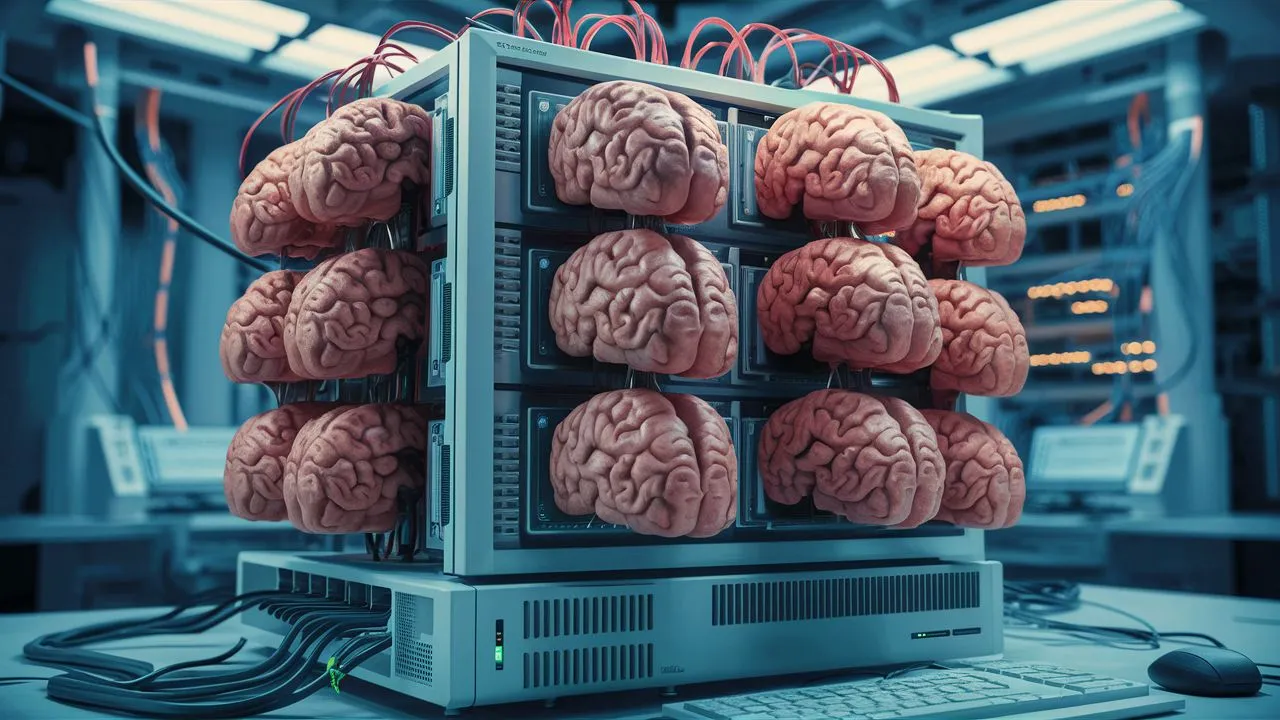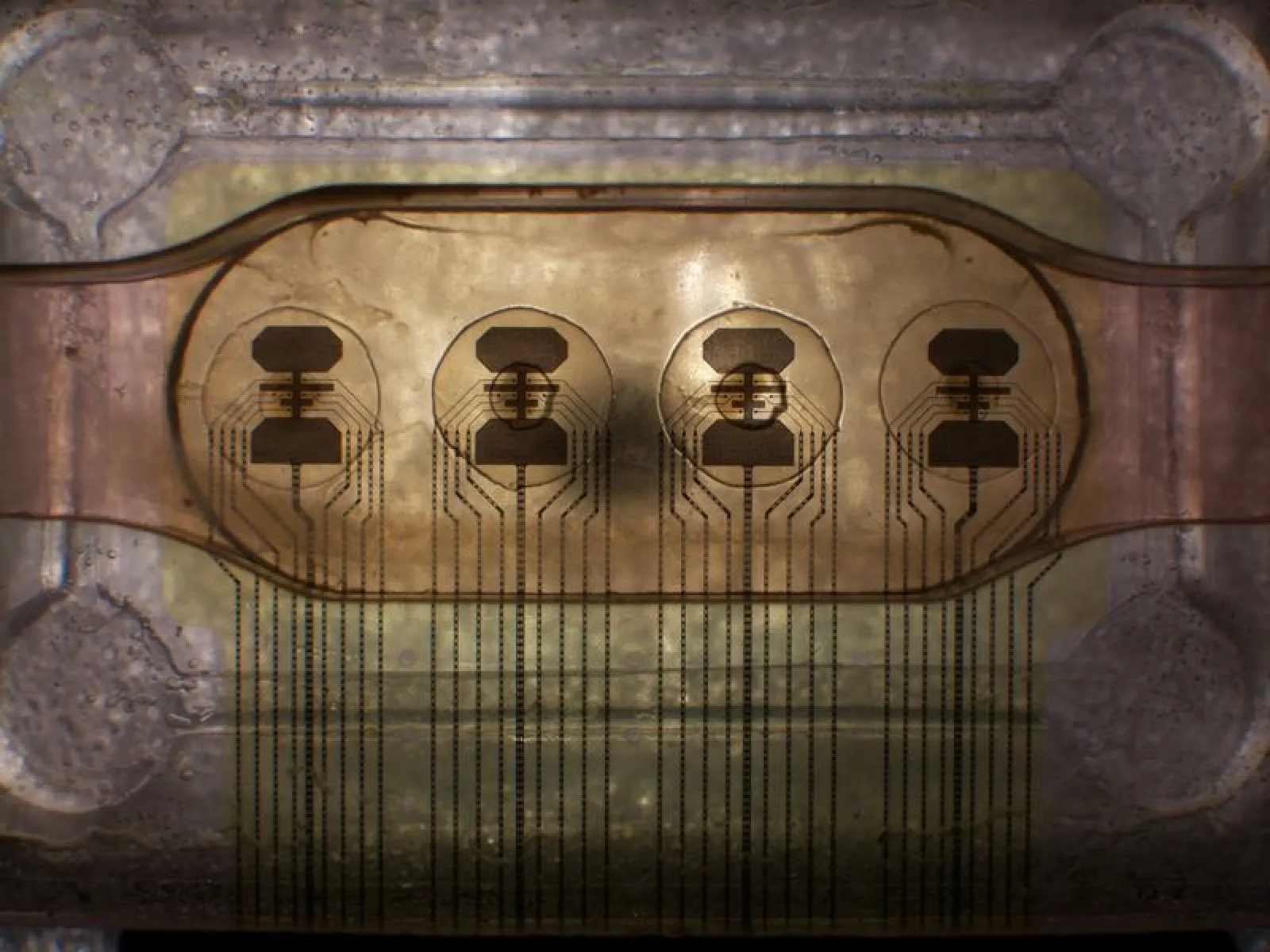Follow us on Google News (click on ☆)

FinalSpark uses cerebral organoids, three-dimensional structures developed in the laboratory from neuronal stem cells, to create what they call Wetware computing. Unlike conventional artificial intelligence (AI) systems, these organoids consume a million times less energy. Dr. Fred Jordan, co-founder of FinalSpark, emphasizes that recent advances in biology and stem cell technologies are opening up new perspectives in the field of synthetic biology.
FinalSpark's approach could mark the beginning of an era of environmentally low-impact computing. Rather than integrating biological concepts into traditional computing, the start-up exploits cerebral organoids to process information efficiently. These 16 organoids are connected to electrodes and a microfluidic system that provides them with water and nutrients. According to FinalSpark, a mature organic bioprocessor could replace current energy-intensive machine learning systems.
Current AI systems, such as GPT-4, require colossal amounts of energy to operate. In comparison, the human brain, with its 86 billion neurons, consumes only 0.3 kilowatt-hours per day. According to FinalSpark researchers, training a large language model like GPT-4 requires tens of gigawatt-hours, equivalent to the annual energy consumption of thousands of households.

FinalSpark's Neuroplatform allows researchers worldwide to conduct remote experiments with their cerebral organoids. Over the past three years, this platform has been used with more than 1000 organoids, collecting 18 terabytes of data. Fred Jordan asserts that international collaboration is essential to achieving such ambitious goals.
FinalSpark hopes to expand the capabilities of its platform to include a wider range of experimental protocols, such as the injection of molecules and drugs into the organoids. This technology could revolutionize the field of AI by offering an energy-efficient alternative to traditional processors.